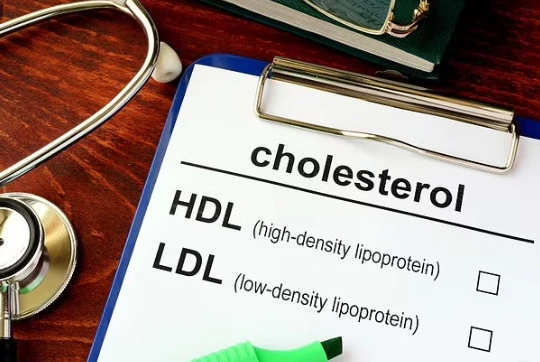Accordingly, eating eggs increases beneficial nutrients without negatively affecting heart disease or diabetes, according to the scientific magazine SciTechDaily (USA).
Scientists have been studying this controversial issue for years. Some believe that eating eggs increases levels of “bad” LDL cholesterol and inflammatory markers linked to heart disease and diabetes, while others emphasize the benefits of eating eggs due to their high nutrient density.

Eating eggs increases beneficial nutrients and does not negatively affect heart disease or diabetes
Now, new research conducted by Dr. Catherine Andersen, associate professor in the Department of Nutritional Sciences at the University of Connecticut (USA), has opened up a broader perspective on the nutritional outcomes of egg consumption.
Associate Professor Andersen and collaborators conducted a more comprehensive study than previous studies on egg consumption, focusing on clinical outcomes, looking at a variety of health parameters commonly tested during routine health check-ups.
Results on egg consumption and risk of heart disease
Researchers compared not eating eggs with eating three egg whites per day and three whole eggs per day.
Results found that eating eggs daily significantly increased levels of choline, an essential nutrient found in egg yolks.
Choline intake is often linked to increases in a metabolite called TMAO, which has been linked to heart disease. But remarkably, the results here show that in people who eat eggs daily, TMAO levels do not increase despite increased choline intake.
"It's great that the results are so good," Dr. Andersen said, according to SciTechDaily.
Results of egg consumption on inflammation, cholesterol and diabetes
The researchers also did not see any adverse changes in inflammation or blood cholesterol levels. They also found that eating eggs had little negative impact on diabetes risk, according to SciTechDaily.

Egg consumption does not cause any adverse changes in inflammation or blood cholesterol levels
In general, egg eaters have higher nutrient density and are less likely to be anemic.
We took comprehensive measurements to better assess the overall impact of egg consumption, says Dr Andersen.
How many eggs should I eat per day?
According to Harvard Health Medical School (USA), a normal healthy person can eat a maximum of 6-7 eggs per week.
American health site Healthline recommends: For healthy adults with normal cholesterol levels and no risk of heart disease, 1-2 eggs per day may be safe.
The American Heart Association recommends up to one egg a day for most people. People with high blood cholesterol, especially those with diabetes or at risk of heart failure, should eat less. And older adults with normal cholesterol levels can eat up to two eggs a day.
Source link



![[Photo] Prime Minister Pham Minh Chinh chairs meeting after US announces reciprocal tariffs](https://vstatic.vietnam.vn/vietnam/resource/IMAGE/2025/4/3/ee90a2786c0a45d7868de039cef4a712)
![[Photo] Moment of love: Myanmar people are moved to thank Vietnamese soldiers](https://vstatic.vietnam.vn/vietnam/resource/IMAGE/2025/4/3/9b2e07196eb14aa5aacb1bc9e067ae6f)

![[Photo] General Secretary To Lam receives Japanese Ambassador to Vietnam Ito Naoki](https://vstatic.vietnam.vn/vietnam/resource/IMAGE/2025/4/3/3a5d233bc09d4928ac9bfed97674be98)
![[Photo] Special relics at the Vietnam Military History Museum associated with the heroic April 30th](https://vstatic.vietnam.vn/vietnam/resource/IMAGE/2025/4/3/a49d65b17b804e398de42bc2caba8368)




















































































Comment (0)